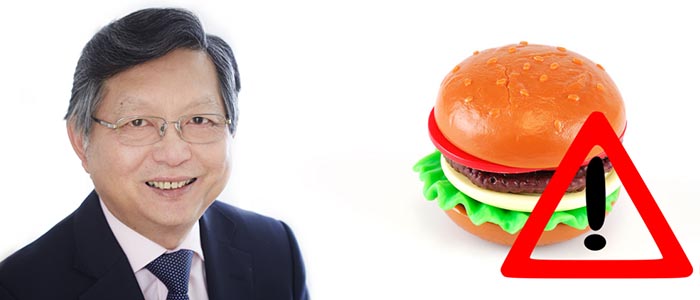19th April 2018
Does fast food really contain plastic?
Michael Ah-Moye FRCOG
CEO and Consultant Gynaecologist
Follow the latest news and developments in the world of fertility.
< View all our fertility news and posts


19th April 2018
Michael Ah-Moye FRCOG
CEO and Consultant Gynaecologist
Research at the University of California, published in the journal Environment International recently found that people who eat out regularly are exposed to higher levels of phthalates, a chemical derived from plastic, which is linked to infertility, cancer and birth problems. People who eat a higher amount of fast foods have higher levels of phthalates. Apparently, sandwiches and cheeseburgers, in particular, appear to contain high levels of this chemical.
The research shows that 24 hours after eating out, people have a third more phthalates in their urine than control groups who cook at home. The study involved more than 10,000 subjects.
Phthalates are found in food and water, plastic takeaway boxes, packaging and food processing. They are in dairy products, possibly from the plastic tubing used to milk cows. They are in meats (some phthalates are attracted to fat, so meats and cheeses have high levels).
Why is it harmful? These industrial chemicals have been linked to reproductive problems from infertility to IQ and behavioural problems in children exposed to these chemicals from the womb. In 2008, they banned the materials from children’s toys.
At Herts & Essex Fertility Centre we have always advised our patients to follow a healthy lifestyle, do some exercise, eat healthily and avoid junk food. From the above study, it might also be wise to avoid plastic packaging.
If you still can’t resist your favourite fast food joint, even knowing that your meal might come with a “side” of chemicals, at least try to choose the most nutritious option on the menu. Here, are some tips on making the right choice when faced with the drive-through:
To find out what changes you could make to improve your chances of conceiving visit fit-for-fertility.com or call us on 01992 78 50 60 to book some time with one of our fertility experts.